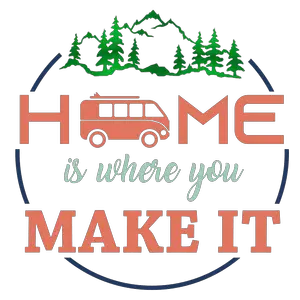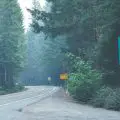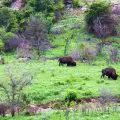Hey! This site is reader-supported and we earn commissions if you purchase products from retailers after clicking on a link from our site.
Before you begin any journey with your motorhome or camper, there are a few things you should do to ensure that your RV is mechanically sound and safe for your travels. In this checklist I’ll cover some of the most important things that I do whenever I head out on my next adventure.
- Engine maintenance: For those of you that travel in a class A, B, or C motorhome, you should always make sure that your engine is in good working order. You won’t need to have a tune-up done for every trip you take but you should always make sure that you have the proper amount of fuel and things like oil, brake fluid, transmission fluid, engine coolant and windshield washer fluid should be checked to make sure that you have the amount needed to adequately and safely operate your motorhome.
- Tires: Always check your tires for proper air pressure or they will wear down improperly, increase your fuel consumption and in extreme instances blow out and cause an accident. Also, if you store your RV for long periods of time, you should check for weather cracking on the tire’s sides. If your tires are exposed to long periods of sun or snow exposure while in storage, you should purchase wheel covers to help prevent cracking.
- Hitch, towing, and axle inspection: Since I have a 5th wheel RV, I always inspect that wheel and make sure that it’s adequately greased and the pin and locking mechanism are working 100% correctly and you definitely should do this if you are towing any trailer behind you. If you have a ball and hitch trailer, then you should inspect the tongue for any cracks and the locking mechanism on the ball as it may need to be lubricated. Inspect the locking pin and if you have one of those bike/scooter/extra storage racks that connect to your RV with a receiver, you should plan on inspecting the locking pins on that as well. Now is also a good time to inspect your axles and suspension system. If you have more than one axle on your trailer, make sure they are in line with each other and that they are well lubricated too.
Related: Best trailer hitch locks
Now that we have covered some of the maintenance issues, you should consider before you take your RV out for a short excursion or a longer trip, let’s take a look at some of the things you should consider checking as a matter of personal safety.
- Fire extinguishers: Always make sure that your fire extinguishers are fully charged and ready to work. Personally, I don’t think you can have too many of them. There are codes requiring one or two that are placed here or there in your RV, but I go above and beyond those codes and I recommend you do as well.
- Smoke and carbon monoxide detectors: When you’re traveling down the road, fixtures in your water, propane, and electrical systems can sometimes come loose or even rupture and break. Make sure that your fire and carbon monoxide detectors are working correctly and don’t go to your destination until you have them working exactly as they are designed to do so.
- First-aid kit: If you plan on boondocking, then you know that sometimes you are hours away from professional medical care and facilities. Make sure you have a good first-aid kit and one that will ensure the safety of you and your family. Friends or pets. I keep a large first-aid kit in my RV but I also keep a couple of smaller kits around for when I am hiking or fishing.
- Road safety: While RVs are not required to have road flares and reflective triangles like commercial trucks, I recommend having those on hand as well. There may come a time when you are broken down on the side of a highway and your rig may even be out in a lane of traffic. Just remember, it’s better to have that gear and not need it, than to need that gear and not have it. Keep in mind though that you should exercise caution when lighting a road flare…you don’t want to be the folks that sparked the worst forest fire in the Grand Teton National Park.
Be sure to check out my full guide on essential RV maintenance as well.




